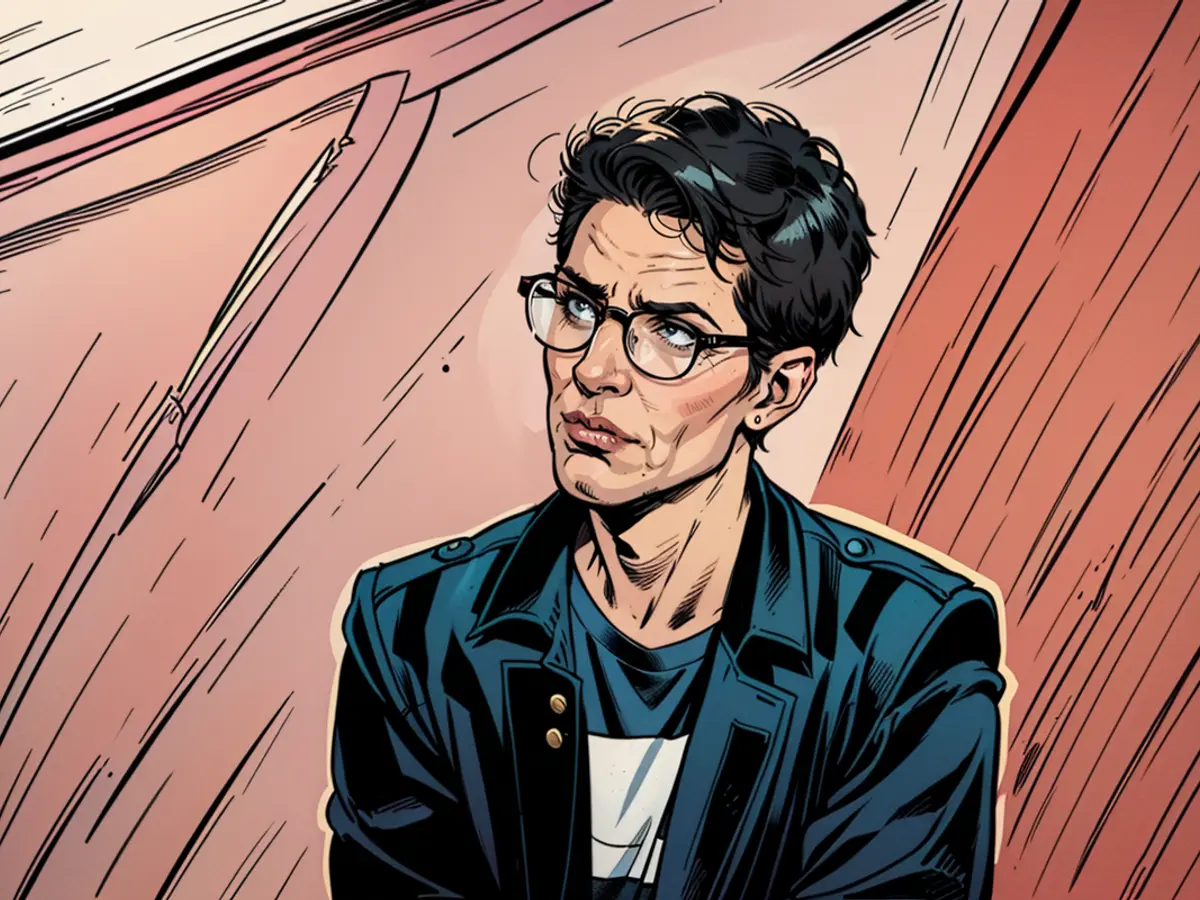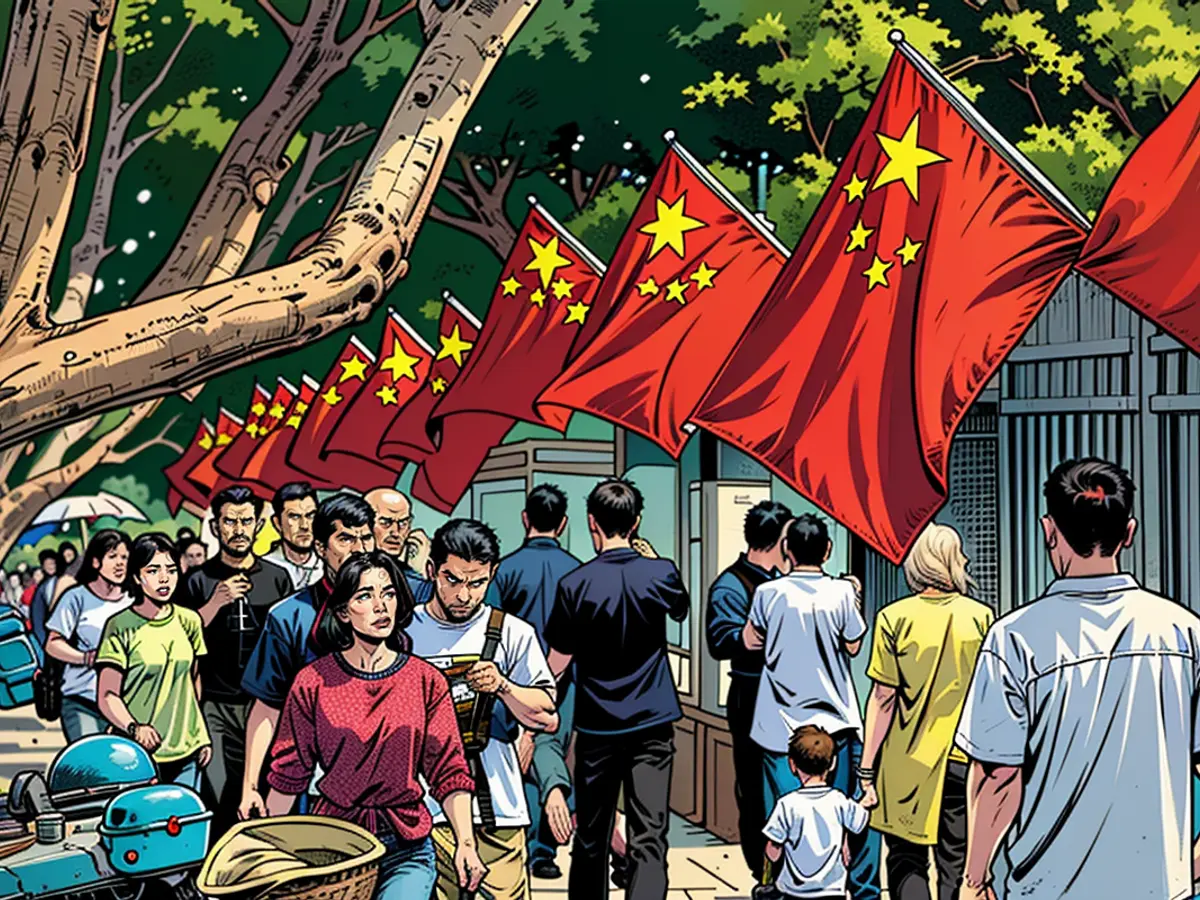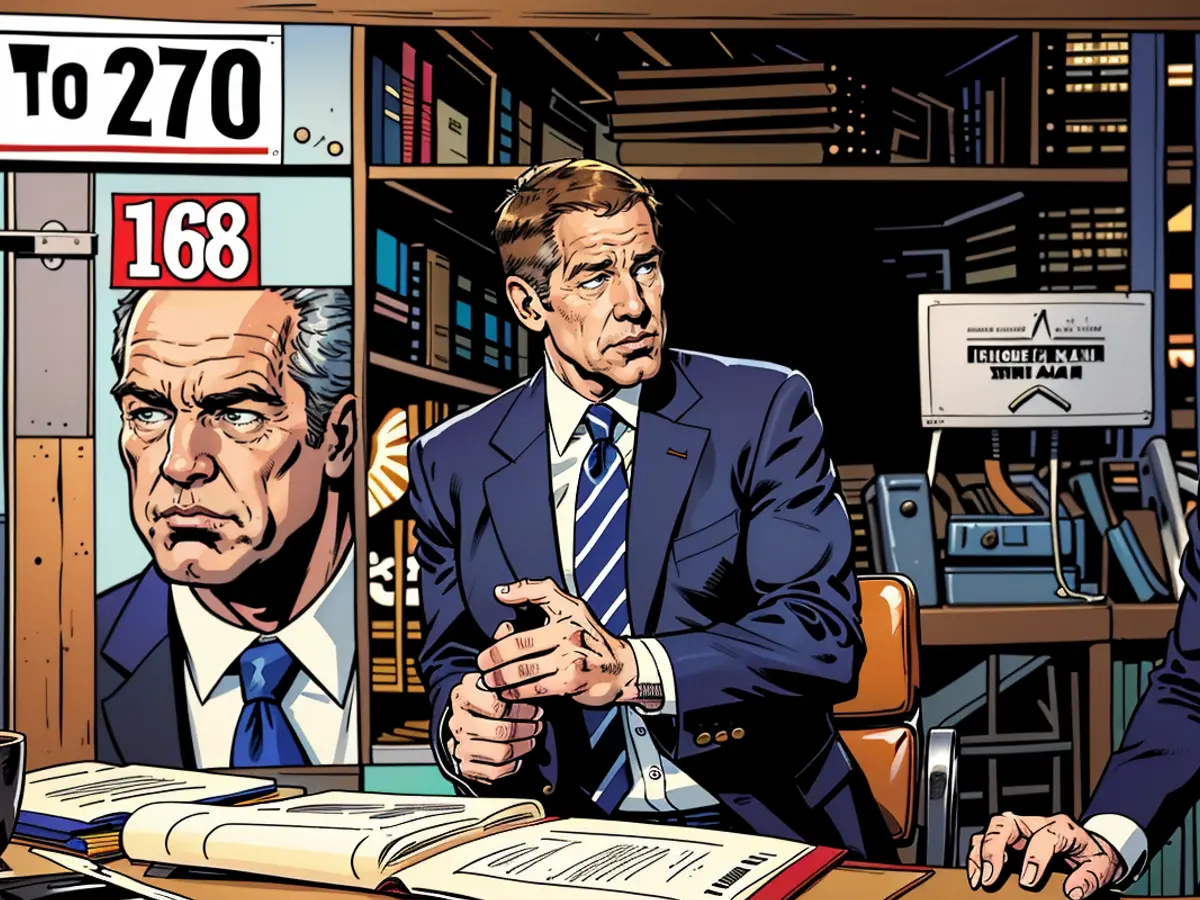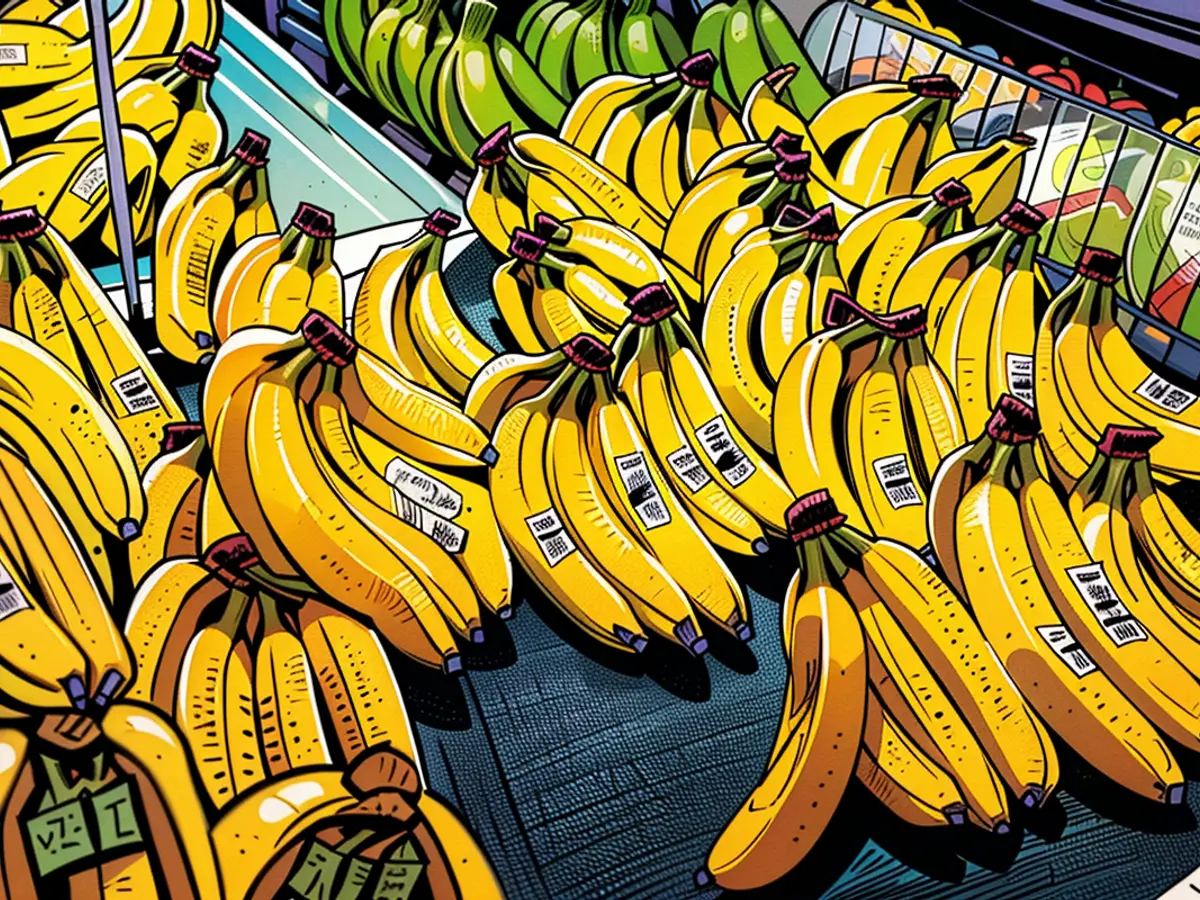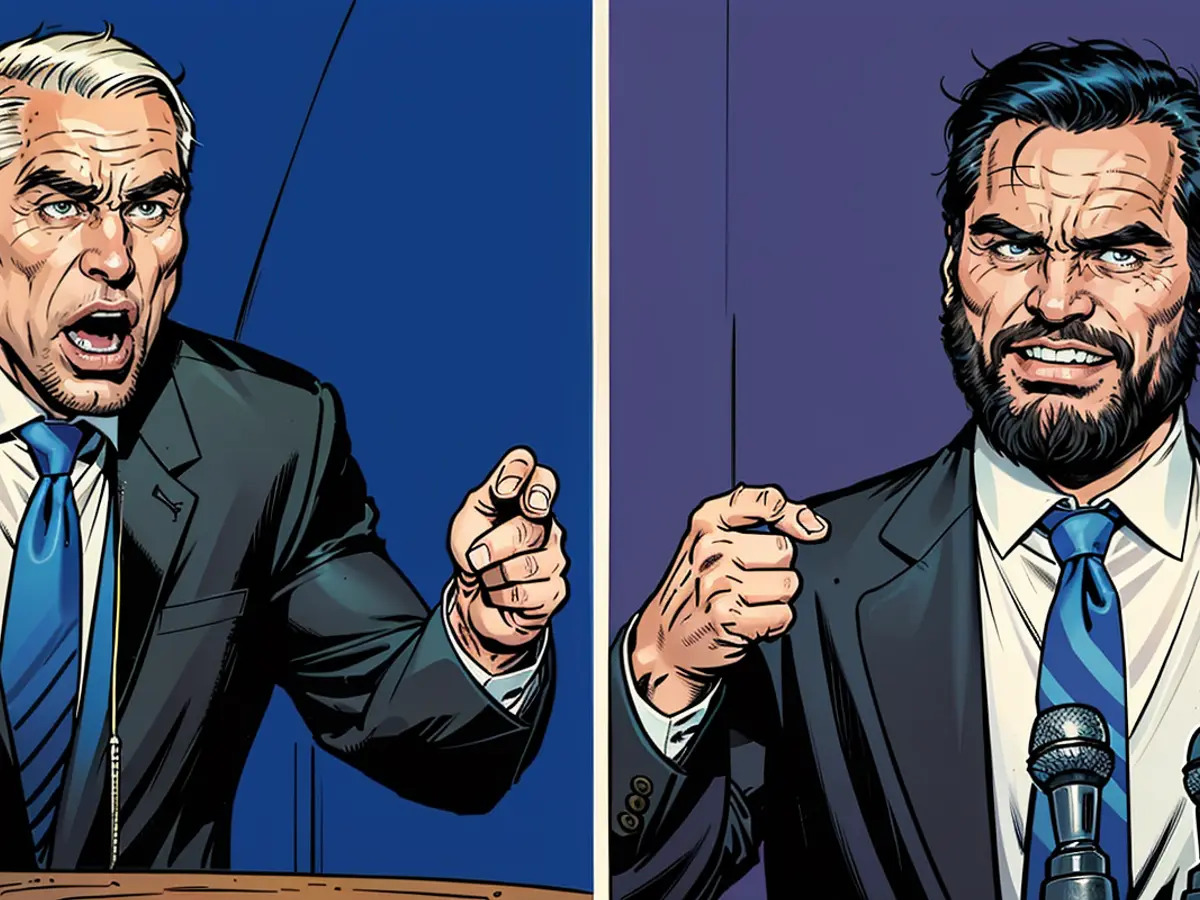MSNBC Presenter Rachel Maddow Answers Questions: She Talks About the Growth of Authoritarianism and Her Fears Over Being Targeted by Trump
MSNBC's top host, Rachel Maddow, recently premiered the second season of her popular audio series, "Ultra." The show, which consists of six episodes, dives into a forgotten true story from America's post-WWII history that mirrors the alarming politics of today. The synopsis alludes to a foreign influence operation, a "Hail Mary scheme to stop the counting of Electoral College votes," and the "fraying" relationship between "the violent ultra-right and mainstream American politics." This sounds uncannily similar to the current political climate.
We caught up with Maddow via email to talk about the new season, the 2024 election, and the potential dangers she could face if Donald Trump wins re-election. Here's what she had to say, presented without editing.
What makes the audio format so appealing to you as a storyteller?
I've been a radio broadcaster since way before I got the opportunity to appear on TV. When I think about how to explain, express myself, or narrate a story, I first consider the spoken word. The audio format calls for more precision in the writing and the delivery than television does, as you can't rely on on-screen elements or body language. This applies particularly to projects with a longer narrative arc, like "Ultra" and "Bag Man." The level of attention demanded from the audience expands to four or five hours.
How does the audio format benefit storytelling in projects like "Ultra" and "Dejá News"?
For series with complex, extended storylines, such as "Ultra" and "Bag Man," the audio format's precision and rigor contribute to a more immersive listening experience. It's an engaging medium that requires a high level of commitment from the audience, which can be rewarded with a captivating tale.
In "Déjà News," the audio format helps showcase archival sound in a unique and interesting way. Not to mention, my co-host and long-time producer, Isaac-Davy Aronson, has an incredible radio voice!
What can we learn about our current political climate from the history presented in Season 2 of "Ultra"?
History can provide valuable insights and lessons, particularly when it comes to dealing with threats like violent extremism and their connection to mainstream politics. For example, knowing that political figures have exerted undue influence on the criminal justice system in response to their extremist allies being charged with crimes instills a certain level of preparedness.
Additionally, it's comforting and discomforting to see how factually-unhinged political conspiracy theories have impacted American politics in the past. One lesson is that there's always a certain degree of susceptibility to these lies in our population. On the other hand, dedicated, patient, and responsible discrediting of these false narratives has a positive influence on the median voter and can shift public opinion in the long run.
What parallels did you find between the information landscape in the post-war 1950s and today?
The media landscape in America has always been a complex mix of authority, irresponsibility, partisanship, objectivity, heroism, corruption, and competition. People often romanticize a time when it was less chaotic, but the reality is that it's always been a mess. Ponder the accounts of two World War II-era media personalities in Kathryn Olmsted's "The Newspaper Axis: Six Press Barons Who Enabled Hitler" or dive head-first into the life of Charles Coughlin by listening to Tablet Magazine's "Radioactive" podcast.
Despite this seemingly endless chaos, there were instances where both The New York Times and TIME magazine failed miserably yet succeeded incredibly during the same time period. While they both fell victim to a foreign influence propaganda scheme in 1949, they also published groundbreaking, prescient, and unique reporting from their foreign correspondents.
Is there a noticeable difference in the information environment now compared to the 1950s?
While the media environment has always been an unpredictable mix of great and terrible, both within the same outlet and at different times, it's essential to recognize that it has consistently been a mess. Memories of a linear progression from 'Golden Age' to the current state may just be an optical illusion.
Our finest traditions, in my opinion, motivate us to preserve the equilibrium of modesty and ambition. Let's hold law enforcement to high standards; be as transparent as possible regarding our sources while remaining cautious of manipulators; and accept that we'll commit errors and have a strategy in place to correct them.
Nowadays, it seems that sunshine is no longer a potent disinfectant. In fact, it may even promote the growth of sinister facets in some instances, as they thrive on attention. When we look back on history, how do you interpret this?
Daily news production confronts us with a dilemma every day: should we disregard a falsehood, allowing it to go unchallenged, or discuss it in order to debunk it, which might also amplify it in some way? There is no one-size-fits-all solution for each lie. However, knowing that a surge of untruths is a political tactic can assist us in foreseeing it and potentially explaining its tactical purpose to our audiences.
In "Anatomy of Fascism" by Robert Paxton, Mussolini's response to a question about his governing plans soon after becoming prime minister is quoted: "The democrats of Il Mondo [a Rome-based newspaper] want to know our program? It is to break the bones of the democrats of Il Mondo. And the sooner the better." Authoritarian movements have a strong disdain for journalists professionally and seek to annihilate the concept that there is any fixed truth beyond what the leader mandates. When you encounter someone in politics who is not only wrong but also plum proudly irrational, they're not interested in a fact check, they're looking for a brawl.
Regarding the ongoing debate about whether or not to give certain politicians attention, I'm curious about your current opinion on the airing of Trump live on news networks. At first, CNN and MSNBC refrained from doing so. However, they have since changed their minds. Do you regard this as an improvement?
I don't believe there's an easy black-and-white rule that makes these decisions straightforward. Take each case and scenario on its own, each lie individually. It's significant to continually re-examine these choices, particularly to protect our own journalistic mission from being hijacked by external forces.
MSNBC is frequently compared to Fox News. Many people claim they watch Fox to catch the "conservative" point of view while tuning in to MSNBC for the "liberal" perspective. While this is an imperfect analogy, bearing in mind that Rupert Murdoch's network is devoid of regard for basic truth, how do you react to this assertion?
Hopefully, our work speaks for itself.
Trump and his cronies are brazenly discussing utilizing the government as a means of retaliation against critics in media and politics, including some who openly talk about imprisioning fellow citizens. You're one of his most renowned critics on television. Are you concerned that you may be a target?
I'm more worried about the country as a whole if we place someone in power who proclaims they plan to build detention camps for millions of people and label their opposition as subhuman "enemies from within." He's not joking when he says this stuff, and history demonstrates the devastating outcomes of people with such agendas.
Do you really believe Trump would stop at just targeting well-known liberals?
Furthermore, there are numerous politicians who might believe they'll be safe or even benefit from aligning with Trump. Just ask Mike Pence about how that pans out in the long run.
If Trump invokes the Insurrection Act to deploy the U.S. military against civilians on his first day in office, do you think he'll rescind the order on his second day?
For that matter, what leads you to believe those massive camps he's planning are just for migrants?
Thus, yes, I'm concerned about me. But mostly, I'm concerned about us.
Do you think the media, as a whole, is adequately covering Trump? The common gripe, especially among left-leaning circles, is about how Trump is reported on by news institutions. There is indeed a tendency for these organizations to be more vague when reporting on the radically extremist nature of the Republican Party. What is your view?
Time is of the essence. Our legal system and our democratic process are already under attack, and it's not an isolated extremist individual or small group leading the charge. Instead, it's a concerted undertaking of one of the two major political parties in the country. I think most Americans understand this is taking place, although they may not be entirely sure what they can do about it.
Thoroughly conveying information, in context, about the radical nature of this situation can provide clarity to Jay Rosen's concept of "the stakes" rather than the chances of the election.
I'm not a media analyst, so I'll leave it to other people to evaluate our overall performance. However, I think it's valuable during times like these to learn about how Americans in the past fought for our democracy when it was under threat. Hopefully, it helps others as well.
Does truth always triumph?
I don't believe anything is set in stone. Even the most misguided and worst among us can change for the better. Each person can contribute something to aid their country. If you've ever wondered what you would do if called upon to help your nation, that ringing alarm you're hearing is for you. Now's when you provide your response.
Read also:
In discussing the themes of her audio series "Ultra," Rachel Maddow highlights the similarities between post-WWII political manipulations and current events, noting the potential for foreign influence operations and the volatile relationship between the ultra-right and mainstream politics. This echoes some of the concerns expressed within today's media landscape, where factual-unhinged political conspiracy theories and attacks on journalists have become more prevalent.
During her interview, Maddow noted that Donald Trump and his allies have openly discussed using governmental retaliation against media and political critics, including herself. Given Trump's rhetoric and history of targeting perceived enemies, her fears of being a target are understandable. However, she emphasized that her primary concern lies with the well-being of the country and its democratic principles if such a leader is elected again.
